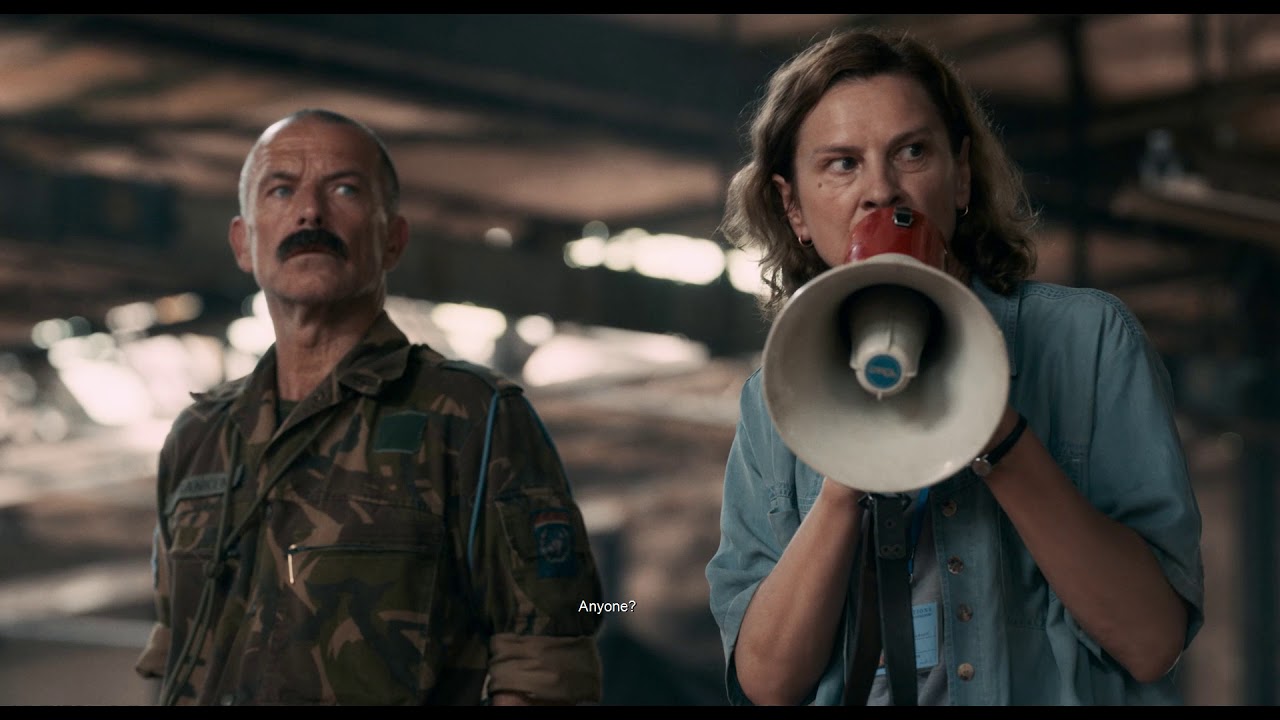Film Review: Quo Vadis, Aida? (2021)

Filmmakers love to make movies about the heroics and brotherhood of soldiers at war. There isn’t anything inherently wrong with this approach, but it rarely tells the whole story, and it rarely accounts for the true toll that war or occupation takes on a population. What’s often forgotten is that, regardless of geopolitical, economic, religious, or vindictive complexities, wars are always major human rights catastrophes – and that cold hard numbers like 8,000, 15,000, or 100,000 civilian dead are tragically bearable when viewed through abstractions like time and distance, so long as they remain nameless and faceless.
But, when the atrocities of war are narrowed down to focus on noncombatants struggling within the chaos and misery of a conflict they had no hand in creating or interest in furthering, these horrors become utterly unimaginable. In Quo Vadis, Aida?, Bosnian director Jasmila Žbanić has dropped us right into the middle of one such crisis, and then asks us to keep our eyes open to ponder what we might do if put in such an impossible situation.
Taking place near Srebrenica, Bosnia in July 1995, Quo Vadis, Aida? follows a UN translator named Aida (Jasna Đuričić) as she clamors to save her family from the ever-encroaching forces of the Bosnian Serb Army. The situation dire, Aida resorts to increasingly desperate measures to ensure the safety of her family as the Army begins to first separate male refugees from female ones, and then to bus them all away to undisclosed locations. Aida’s struggle is harrowing, and the intensity and gravity of her circumstances (and those of everyone involved) increase in tandem with the chaos, culminating in a terrifying yet historically accurate event that is both nightmarish and infuriating.
Through Aida, Žbanić carefully guides us down a dark path of bureaucratic inefficiency and shows us what happens when these ineptitudes collide with despotic brutality. Taking a page from Elem Klimov’s devastating 1985 masterpiece Come and See, she offers hints about what is to come, but shies away from the finality of these deeds until the final, anguished moments. Then, in a heartbreaking turn, Žbanić flashes forward some years to a life that has returned to some semblance of normality. As we look around at those we’ve come to know, their continued torment is visible in their eyes, despite every attempt to conceal it. These haunting images are a painful reminder of what the real cost of war is, and that peacetime doesn’t always bring peace to the survivors.
I was a teenager in the early 1990s when the war in Bosnia was happening. I remember hearing terms like “ethnic cleansing” for the first time, followed by words like “genocide” and “massacre” – abstract words I was assured by the public school system only existed in a historical context. I wouldn’t have claimed then and do not claim now to understand the complicated history behind the Bosnian War, but I do have a distinct memory of American news outlets downplaying (or at least underreporting) the crimes happening in eastern Europe at the time – just like they do now with injustices and uprisings happening all over the world. Why should it take a film to open our eyes to what’s going on out there?

